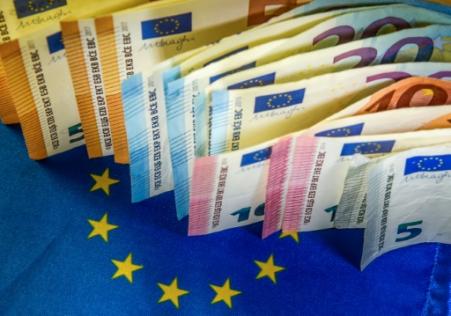
The european Finance ministers meeting Thursday in Luxembourg must be agreement on the broad outlines of a budget for the euro zone, a flagship project of French president Emmanuel Macron significantly revised downwards.
Mandated by european leaders after a summit in December in Brussels, the Finance ministers of the EU has been trying for six months to agree on the issue that divides the countries of the South, advocates of greater solidarity, and those of the North, followers of the budgetary discipline.
However, the distrust of the supporters of the discipline, led by the netherlands, in the face of the Southern States, deemed to be too extravagant, has increased after the recent bisbilles between the populist government of italy, which leaves it spinning its huge public debt, and the european Commission, that the threat of sanctions.
Although the Italian is not officially on the agenda of the meeting, it might cast a shadow on the discussions that have already fairly complicated.
Called “budgetary instrument for competitiveness and convergence”, the embryo of a euro zone budget has the objective of encouraging reforms to increase the competitiveness in the 19 countries that have adopted the single currency.
Sign of persistent tensions, the european Commissioner for economic Affairs, Pierre Moscovici, stressed on Wednesday that he would have “preferred to speak of a euro zone budget, which would be easier to understand”. However, this term is going too far for the countries of the North, the netherlands in the lead, opposed to the very principle of its own budget to the area.
Its amount in any case should be much less than what they would have desired Mr. Macron, who was considering a number of hundreds of billions of euros. Two european sources in Brussels suggested Wednesday a package of 17 billion euros spread over seven years, and placed under the authority extended to the 27 member States of the EU (minus the Uk should leave the european Union).
– Move forward on the banking Union –
The amount of this “instrument”, which must be in the framework of the multiannual budget of the EU, will be arrested during negotiations on the next multiannual financial framework of the EU for the period 2021 to 2027.
“We’re going to start with an amount rather small, this will not be the big bazooka (at the beginning, editor’s note), but it can grow” thanks to additional revenues from new taxes, for example, said a senior european official.
France and Germany propose to establish a tax on financial transactions (FTT) at european level –a project in suffering for several years– that would abound.
The Second point of the reform of the euro zone, where Finance ministers have yet to make progress Thursday: the strengthening of the prerogatives of the european stability Mechanism (ESM), created in 2012 in the midst of the debt crisis, and designed to help countries in difficulty.
Third, they must also move forward on the banking Union, which was launched in 2012 after the financial crisis, and which is not fully completed.
For years, Germany drags its feet to create a european system of deposit guarantee (IDES in English), fearing that its investors pay for the banks of countries of the South, such as the Italian. Berlin wants first reduces the level of bad debts of bad students prior to pooling.
“Unfortunately, on this project, the impasse is still there. No tangible progress” has been made, regretted on Wednesday the vice-president of the european Commission, Valdis Dombrovskis Dombrovskis.
All these reforms are considered particularly necessary by Brussels to face future crises that may spread throughout the Union, because of the close integration of the economies of the countries, in particular within the euro area, which represents 85% of the GDP of the EU-27.







